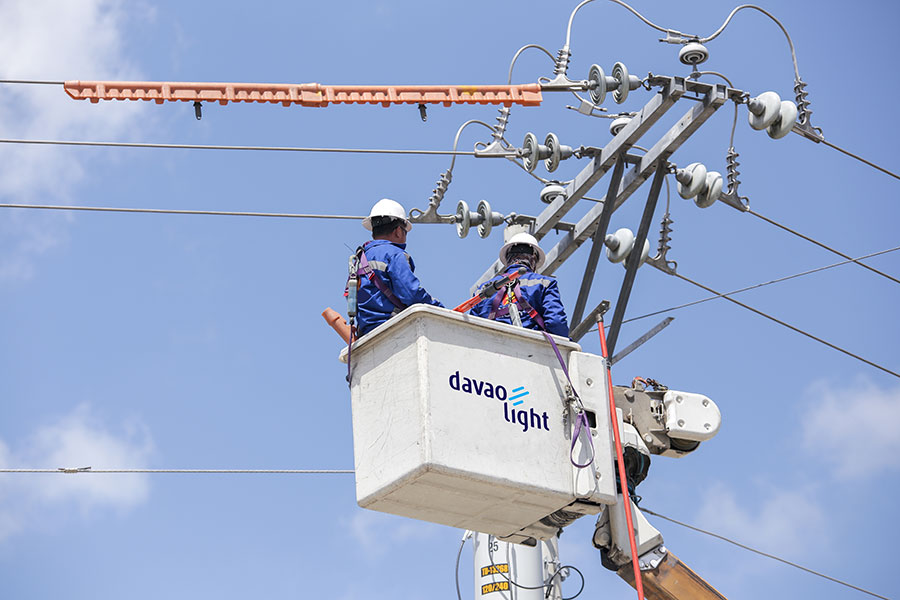This article by AboitizPower President and CEO Emmanuel “Manny” V. Rubio first came out in the fifth edition of the Manila Times 500 and the Next 500 on July 2023. In it, he shares his thoughts on the overlapping responsibilities of the public and private sectors in developing an energy abundant and sustainable energy system for the Philippines.
THE country faces grand expectations from its people in the areas of energy transition, economic growth, and development as these are issues too big and too deeply intertwined for any one institution to solve on its own. But even if it is too daunting a task, especially when contemplated alone, the shared vision of an energy-abundant and environmentally sustainable Philippines with thriving businesses and communities can be achieved with the public and private sectors in synergy.
Energy demand has already recovered as the economy is fully reopened, with power consumption already surpassing pre-pandemic levels, according to the Independent Electricity Market Operator of the Philippines. Indeed, last year’s gross domestic product growth reached 7.6 percent, a huge contrast to the 9.6-percent decline in 2020. Subsequently, the government assumes that the economy will grow by 6 percent to 7 percent this year and 6.5 percent to 8 percent from 2024 to 2028. At those paces, the Department of Energy (DoE) projects peak demand for electricity to increase by almost fourfold from 2020 to 2040, expanding by 6.6 percent per year.
As such, ensuring energy security and affordability remain the country’s top priority, especially since the gap between power supply and demand remains thin. Being a net importer of fossil-based sources, and with domestic fuel prices being indexed on international prices, the country is generally exposed to supply risks and price fluctuations in the international market. For context, in the Philippines, 78 percent of on-grid power and 90 percent of off-grid communities are generated from fossil fuels. Considering this, there really is a case to be made for the need to gradually shift from fossil fuels to more indigenous power sources found within the country’s shores. In recognition, as well as driven by efforts to combat climate change, DoE has set a goal to expand the share of renewable energy (RE) in the country’s power generation mix to 35 percent and 50 percent by 2030 and 2040, respectively.
In that regard, the adoption of RE is treated not as a competing priority, but as a crucial piece to economic growth and development. Still, while that is, indeed, the case, this does not mean that fossil fuels should be abandoned right away. The gradual shift — as a public policy — is probably most reflected in the fact that the government made room for another 50 percent of non-RE sources to be present in 2040, giving allowance for energy security and stability. Reliable and sufficient baseload power is a necessity for the economy, and at the moment, it is a function that cannot be assumed by most RE because of its intermittent nature. Unfortunately, RE sources such as wind and solar power cannot be programmed on demand while thermal capacities can consistently shoulder the country’s base load needs. That is why, as the country navigates this transition, it is important that the Philippines reinvests in its existing fleet of generation capacities in order that it can work well with new technologies such as artificial intelligence and data analytics systems, making it more efficient and reliable for the benefit of the whole energy system.
While baseload capacities such as coal and liquified natural gas will still be running the show, variable RE — such as solar photovoltaics, and onshore and, eventually, offshore wind — will, probably, still take the spotlight in the energy transition. The use of energy storage systems technology in the Philippines, such as lithium-ion batteries and flywheels, suggests that a future, wherein intermittent RE works seamlessly with different technologies, is possible. These energy storage capabilities allow surplus electricity to be stored for later use when it is needed by the power grid, making it complementary with wind and solar sources, which are not constantly available. Still, we should closely watch the levelized cost of electricity of these technologies to ensure that the cost of building and operating are recovered. Once these become commercially viable and scalable, the country can look forward to cleaner, reliable and more affordable power.
But one must also ask: how can the Philippines ensure that a future wherein the energy mix is more diversified is accommodated and made more possible?
Part of the answer is by providing and maintaining an environment wherein private capital and innovations feel welcome and protected. To attract investments — whether in new capacities or technologies such as energy storage systems — the country should send the right signals via sound regulatory frameworks, the rule of law and accompanying transmission infrastructure. While RE power plants can now be 100-percent owned by foreign investors, the implementation of the Ease of Doing Business Act and the Energy Virtual One-stop Shop can still be improved, considering how it still takes at least 200 signatures to establish a power plant. Digitalization in relevant government agencies can translate into more harmonized regulations, and streamlined operations and processes, leading to less delays or barriers to securing the requirements for energy projects and, eventually, power supply agreements.
Moreover, the rule of law, or the accountability of all institutions under the same regulation, must be enforced by the government to assure investors that there is fair competition in the industry. This serves as an incentive for new players to enter the market and for existing players to uphold their existing contracts. At the same time, transmission infrastructure must catch up with the advancements in the generation sector. Even if generation companies build all the power plants and technologies they are capable of, it would be rendered useless if there is a lack of transmission facilities to transport electricity to distribution utilities and into businesses and homes.
Building an energy system that works for Filipinos is a monumental task for both the public and private sectors, but it is by no means impossible. The government and the energy industry can and should work hand in hand to provide a balanced mix of reliable, affordable and sustainable electricity to power personal and national aspirations. Indeed, the prospects of the country lies, in huge part, with the future of energy, and as Louis Pasteur paraphrased the Latin maxim into the vernacular, “In the fields of observation, chance favors only the prepared mind.”



